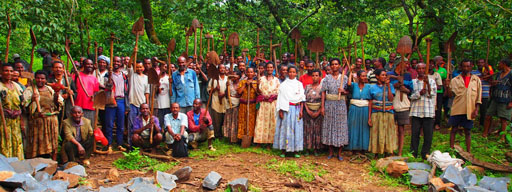8.3 Community empowerment
In Study Session 5 you read about participation as one of the essential components of good governance. Evidence shows that the participation of users in any development project, especially in the WASH sector, is of paramount importance to ensure sustainability and to create a sense of ownership. If communities have been fully involved in developing and implementing a WASH programme, they gain a sense of authority, or power, and this helps them to build confidence in their own capabilities. This is known as community empowerment.
In the past, the people planning WASH interventions did not always appreciate how important it was to engage communities in the process. Sometimes donors and non-governmental organisations (NGOs) would provide new services such as a well and pump without involving the local people in planning and developing the scheme. These schemes were installed without considering the opinions of the local community and then handed over to them to look after without giving attention to the organisational arrangements needed to maintain the scheme. Communities need to be involved and share responsibility for a scheme to make it successful and sustainable. Figure 8.3 shows a rural community which has worked together in their efforts to bring water to their village. Having invested their own time and energy, they will have an enduring sense of ownership of the scheme.

At the community level there is a requirement that WASHCOs for rural water schemes and WASH boards in urban settings should be formed to manage and maintain each water scheme. WASHCO members are elected by the community and, as you have learned, are constituted with a chair, secretary, treasurer and other officers. They are accountable to their communities and benefit greatly if they are given formal status so that they have a legal authority and can gain access to credit from micro-finance institutions.
The WASHCO’s duty is to plan and manage the community’s water and sanitation. The WASHCO is the prime agent of change in the process of mobilising people to undertake and sustain water and sanitation services. Communities also use the support of local artisans to implement water supply schemes.
8.2 Gender mainstreaming
